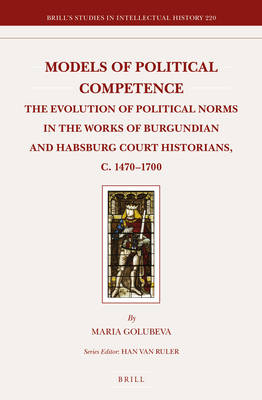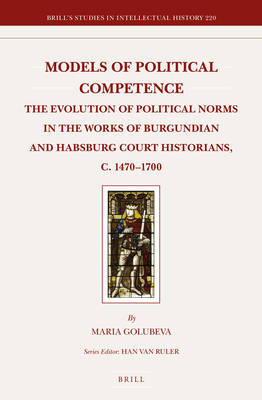
- Afhalen na 1 uur in een winkel met voorraad
- Gratis thuislevering in België vanaf € 30
- Ruim aanbod met 7 miljoen producten
- Afhalen na 1 uur in een winkel met voorraad
- Gratis thuislevering in België vanaf € 30
- Ruim aanbod met 7 miljoen producten
Zoeken
Models of Political Competence
The Evolution of Political Norms in the Works of Burgundian and Habsburg Court Historians, C. 1470-1700
Maria Golubeva
€ 109,40
+ 218 punten
Omschrijving
Offering a systematic analysis of texts produced at the courts of Burgundy and Austrian Habsburg over a period reaching from the 1470s until the early 1700s, this book traces the development of the idea of successful and competent political behaviour as seen through the eyes of court historians between the fifteenth and the eighteenth centuries. The official chronicles and histories studied in this work not only reveal a growing influence of secular political thinking on the evolving model of political competence, but also present in detail the close relationship between the nascent state ideology and secular political theory.
More broadly, following the development of official history-writing, Models of Political Competence highlights the importance of historiography for the research on political thinking and its relevance for our understanding of the modern state in Europe and its origins.
More broadly, following the development of official history-writing, Models of Political Competence highlights the importance of historiography for the research on political thinking and its relevance for our understanding of the modern state in Europe and its origins.
Specificaties
Betrokkenen
- Auteur(s):
- Uitgeverij:
Inhoud
- Aantal bladzijden:
- 160
- Taal:
- Engels
- Reeks:
- Reeksnummer:
- nr. 220
Eigenschappen
- Productcode (EAN):
- 9789004231054
- Verschijningsdatum:
- 17/05/2013
- Uitvoering:
- Hardcover
- Formaat:
- Genaaid
- Afmetingen:
- 155 mm x 235 mm
- Gewicht:
- 396 g

Alleen bij Standaard Boekhandel
+ 218 punten op je klantenkaart van Standaard Boekhandel
Beoordelingen
We publiceren alleen reviews die voldoen aan de voorwaarden voor reviews. Bekijk onze voorwaarden voor reviews.











